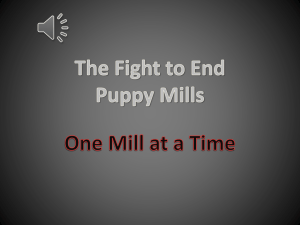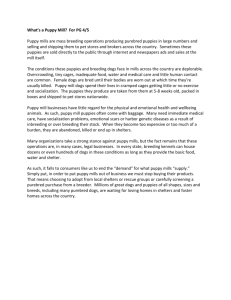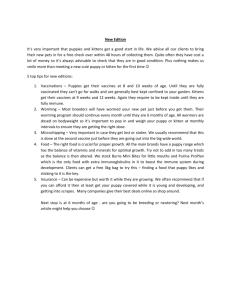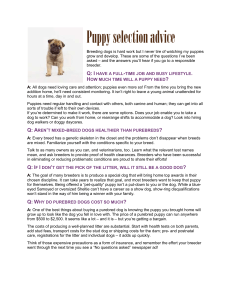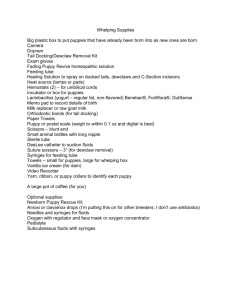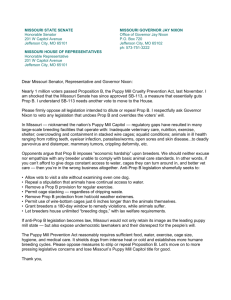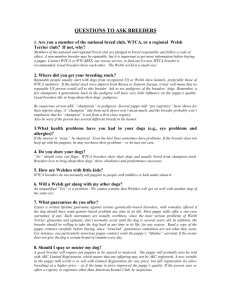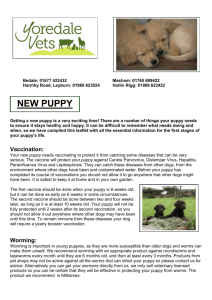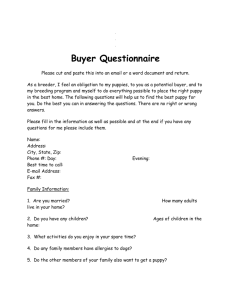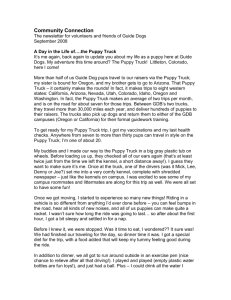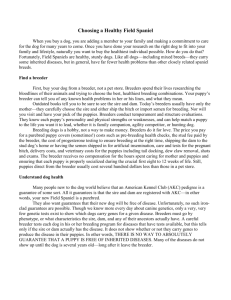Puppy Livestock - St. Petersburg College
advertisement
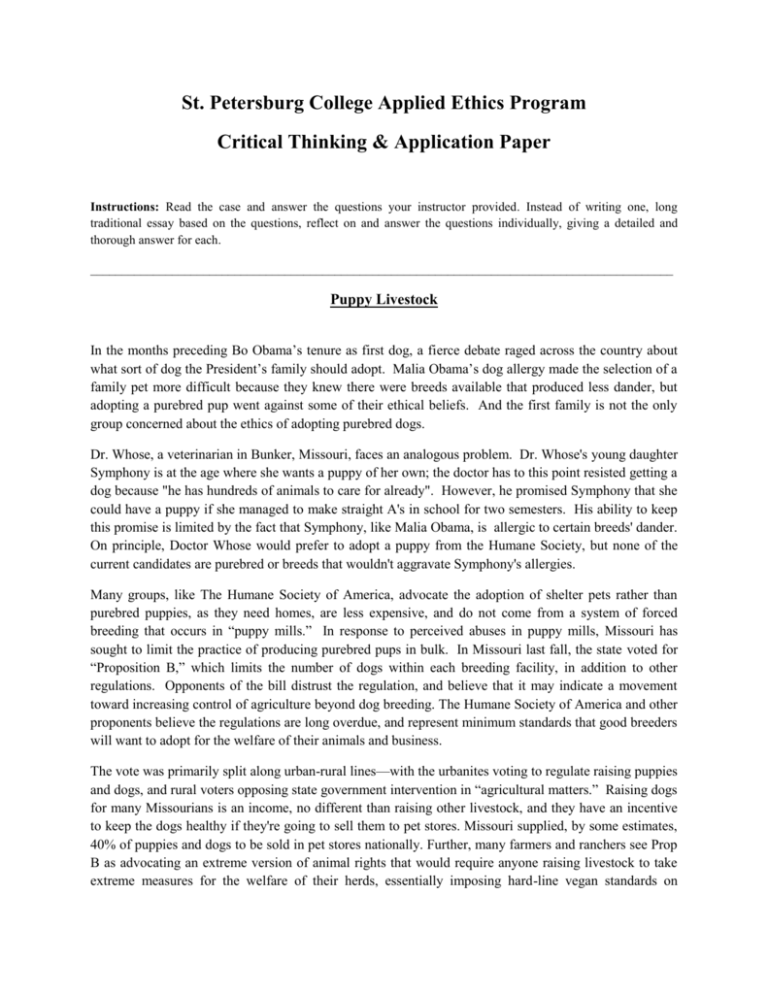
St. Petersburg College Applied Ethics Program Critical Thinking & Application Paper Instructions: Read the case and answer the questions your instructor provided. Instead of writing one, long traditional essay based on the questions, reflect on and answer the questions individually, giving a detailed and thorough answer for each. _____________________________________________________________________________________________ Puppy Livestock In the months preceding Bo Obama’s tenure as first dog, a fierce debate raged across the country about what sort of dog the President’s family should adopt. Malia Obama’s dog allergy made the selection of a family pet more difficult because they knew there were breeds available that produced less dander, but adopting a purebred pup went against some of their ethical beliefs. And the first family is not the only group concerned about the ethics of adopting purebred dogs. Dr. Whose, a veterinarian in Bunker, Missouri, faces an analogous problem. Dr. Whose's young daughter Symphony is at the age where she wants a puppy of her own; the doctor has to this point resisted getting a dog because "he has hundreds of animals to care for already". However, he promised Symphony that she could have a puppy if she managed to make straight A's in school for two semesters. His ability to keep this promise is limited by the fact that Symphony, like Malia Obama, is allergic to certain breeds' dander. On principle, Doctor Whose would prefer to adopt a puppy from the Humane Society, but none of the current candidates are purebred or breeds that wouldn't aggravate Symphony's allergies. Many groups, like The Humane Society of America, advocate the adoption of shelter pets rather than purebred puppies, as they need homes, are less expensive, and do not come from a system of forced breeding that occurs in “puppy mills.” In response to perceived abuses in puppy mills, Missouri has sought to limit the practice of producing purebred pups in bulk. In Missouri last fall, the state voted for “Proposition B,” which limits the number of dogs within each breeding facility, in addition to other regulations. Opponents of the bill distrust the regulation, and believe that it may indicate a movement toward increasing control of agriculture beyond dog breeding. The Humane Society of America and other proponents believe the regulations are long overdue, and represent minimum standards that good breeders will want to adopt for the welfare of their animals and business. The vote was primarily split along urban-rural lines—with the urbanites voting to regulate raising puppies and dogs, and rural voters opposing state government intervention in “agricultural matters.” Raising dogs for many Missourians is an income, no different than raising other livestock, and they have an incentive to keep the dogs healthy if they're going to sell them to pet stores. Missouri supplied, by some estimates, 40% of puppies and dogs to be sold in pet stores nationally. Further, many farmers and ranchers see Prop B as advocating an extreme version of animal rights that would require anyone raising livestock to take extreme measures for the welfare of their herds, essentially imposing hard-line vegan standards on unwilling breeders. Lastly, some argue that Prop B might actually lead to greater cruelty to many animals. Because the law prevents animals in overcrowded facilities from staying with their current owners, it would force many breeders to dispose of otherwise healthy animals by euthanasia or other means. Supporters of Prop B argue that Missouri's status as the dog-breeding capital of the country comes from its lax regulations, and that these lax regulations lead to horribly inhumane treatment of animals known first and foremost as “man’s best friends.” Though the measure passed, the debate goes on as Missouri's state government passes bills to limit the impact of the Proposition. What should Dr. Whose do? This case was based on and adapted from a case published by the Association of Practical and Professional Ethics for use in the national intercollegiate Ethics Bowl competition, and is being used with their permission.
